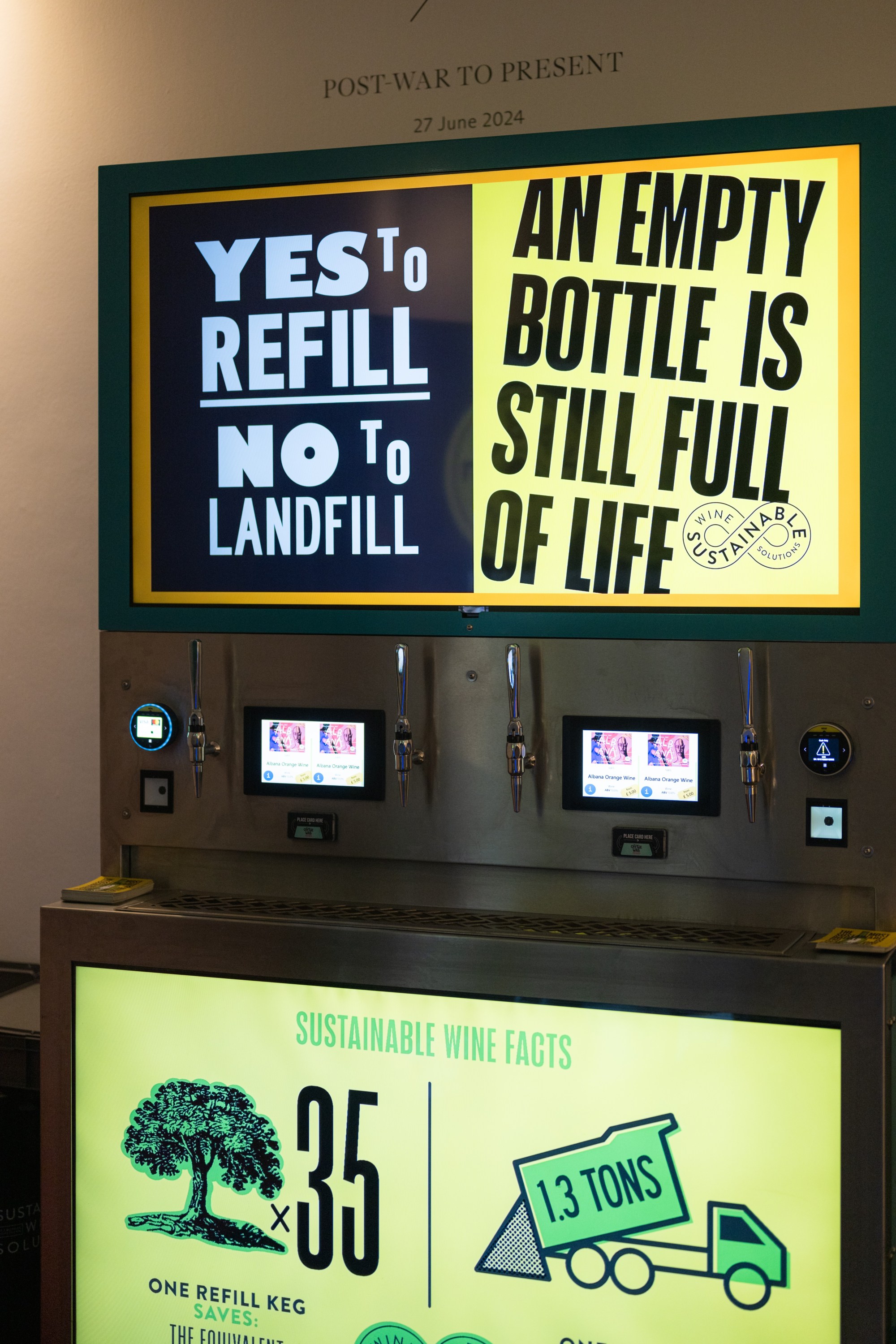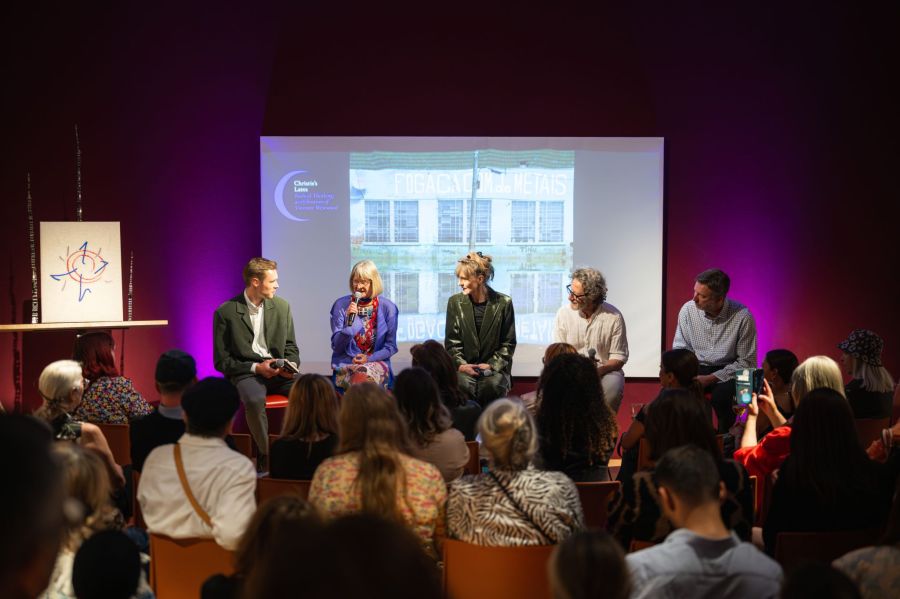I think it is fair to say that my journey into the wine industry has been anything but conventional. It has taken me from the corporate world of commercial property to the biodynamic vineyards of Provence, from the hustle of London to the serene landscapes of rural England.
Along the way, I have discovered not only where my passions truly lie but how anyone can build a life that respects their individual values. More than that, this journey has deepened my understanding and appreciation for the role that communities play in protecting our natural environment. The connection between land, people, and purpose has become a guiding principle in my work, shaping my approach to sustainability in the wine industry.
From property to purpose
My career began in commercial property, having studied and specialised in property-led regeneration in Bristol. This field gave me valuable insight into the importance of taking a holistic approach when seeking to create communities that can thrive for the long term. It also highlighted the challenges of balancing financial imperatives with the social and environmental needs of the city. Engaging with a broad range of stakeholders, from local councils and charity organisations to developers and residents, I learned firsthand that sustainability is not a one-dimensional pursuit but an intricate balancing act of competing interests.
Following my degree, I moved to London to work towards becoming a chartered surveyor. Immersing myself in the fast-paced world of commercial property exposed me to the positive role property plays in shaping our built environment and how we interact with each other on a daily basis. However, it also revealed the transactional nature of the industry and its significant impact on the environment, with large-scale developments consuming resources on an industrial scale. As I climbed the corporate ladder, I found myself on a treadmill of responsibility and experience, gaining exposure to high-profile projects but feeling increasingly disconnected from the real world.
I began questioning how I wanted to invest my time and energy in the long term. The decision to step away from property was not one I made lightly. It came with uncertainty and a loss of financial security, but deep down, I knew it was the right path. I needed to explore alternative ways of working where I could align my career with my passion for people, community, and meaningful change.
A summer to explore
In 2018, I left London behind. I bought a classic Mini – my first car – and mapped out a summer of discovery. My plan was simple: to immerse myself in different communities, expose myself to new experiences, and push the boundaries of how I could live and work.
My first stop was Bredy Farm in Dorset, a family-run farm with a unique twist. Unlike traditional arable or livestock farms, Bredy Farm had evolved under the stewardship of Charlie, the grandson of the original owners. His passion for music had reshaped the farm’s purpose, hosting daily performances in the cider shed and weekend music festivals throughout the summer. I joined as a volunteer through World Wide Opportunities on Organic Farms, exchanging my time and labour for food and accommodation.
Life on the farm had an almost timeless quality. Evenings were spent walking down to the Jurassic Coast, just a mile away, or enjoying live music with a glass of farm-brewed cider. This experience reinforced the importance of community and alternative business models that integrate passion with sustainability. It also sparked my curiosity about agriculture and land use beyond the commercial property framework.
From Dorset, I continued my journey to Cornwall, where I worked as a chef at the Shipwright’s Arms, a 16th-century pub perched on the Helford Estuary. The six weeks of relentless 14-hour days in the heat of the kitchen taught me resilience. More importantly, I saw the strength of village communities – how a pub could be more than just a business but a central pillar of local life. It was another lesson in sustainability: businesses that endure are those that foster strong social connections.
Discovering the vineyard way of life
Leaving Britain’s shores, I set sail to France and travelled to Provence, where I worked on a biodynamic vineyard. It was here that I was introduced to the intricate relationship between agriculture and nature, particularly the principles of biodynamics – a philosophy that views a farm or vineyard as a self-sustaining ecosystem. The long, hot days working in the vines were punctuated by cool-off swims in the nearby river, while the powerful mistral wind swept across the landscape, shaping the environment and reinforcing the deep connection between nature and winemaking.
Beyond the physical work, life on the vineyard was about shared experiences. Coffee breaks and late-night dinners with the team became a space for storytelling and learning. We bonded over our collective efforts in the vineyard and the sheer joy of working with the land. Weekends were spent exploring Marseille, the Camargue, and nearby villages, immersing ourselves in the culture and history of the region. Music nights at the local brasseries and the friendships formed with fellow volunteers made the experience even richer.
When my time in Provence came to an end, I continued my journey, travelling back through Spain, crossing the Pyrenees, and finally returning to Britain by boat from Santander. This journey was more than just a change of scenery – it was a shift in perspective, reinforcing my belief that sustainability is deeply rooted in the connections between land, people, and tradition.
Bridging the gap: sustainability in the wine industry
Eager to deepen my understanding of sustainability and its challenges both in industry and for the general public, I pursued a Master’s degree in International Sustainability Management at the European Business School (ESCP), studying in Berlin and Paris. This experience provided me with a global perspective on the issues, challenges, and opportunities surrounding sustainability, equipping me with the tools to approach these issues with greater depth and clarity.
As my studies progressed, I specialised in wine sustainability, focusing my thesis on “Developing Sustainability in the Global Wine Industry – Is There a Demand for Common Standards? An Analysis of Stakeholders’ Perspectives.” Alongside my research, I joined the founding committee of the Sustainable Wine Roundtable, an initiative aimed at addressing the confusion surrounding sustainability in wine and facilitating collaboration across the supply chain. Over the next three and a half years, I worked with winemakers, distributors, retailers, and sustainability bodies to create greater transparency and drive practical solutions.
The Vine Strategy Group: Making meaningful connections
These experiences led me to establish The Vine Strategy Group, a platform for making connections, creating partnerships, and delivering meaningful change. We bring together professionals, businesses, and organisations to collaborate on sustainability through education, training, research, and events.
Since launching in May 2024, we have worked with partners such as Christie’s Lates, Somerset House’s SOIL exhibition, the Wine & Spirit Education Trust, Sustainable Wine Solutions, WinePilot, Vidacycle, The Drinks Trust, and Académie du Vin Library to create opportunities for learning, discussion, and action.
Recognising the power of the arts in fostering dialogue and new perspectives on sustainability, we have collaborated on exhibitions, discussions, and creative projects that engage audiences in fresh ways. By integrating art and culture into our work, we create spaces where people can connect emotionally with environmental issues, sparking meaningful conversations and inspiring real-world solutions.
As we look ahead, our focus remains on deepening these partnerships, growing our network, and continuing to push the conversation forward. The journey so far has been one of exploration, learning, and adaptation. But most importantly, it has been about staying true to the belief that sustainability and commercial success can go hand in hand when approached with thoughtfulness and creativity. Wine, at its core, is about connection – to the land, to the people who make it, and to those who enjoy it. And if we can help shape a future where those connections are nurtured in a way that is both responsible and rewarding, then we will have achieved something truly meaningful.

For more like this, sign up for the FREE Vineyard newsletter here and receive all the latest viticulture news, reviews and insight




